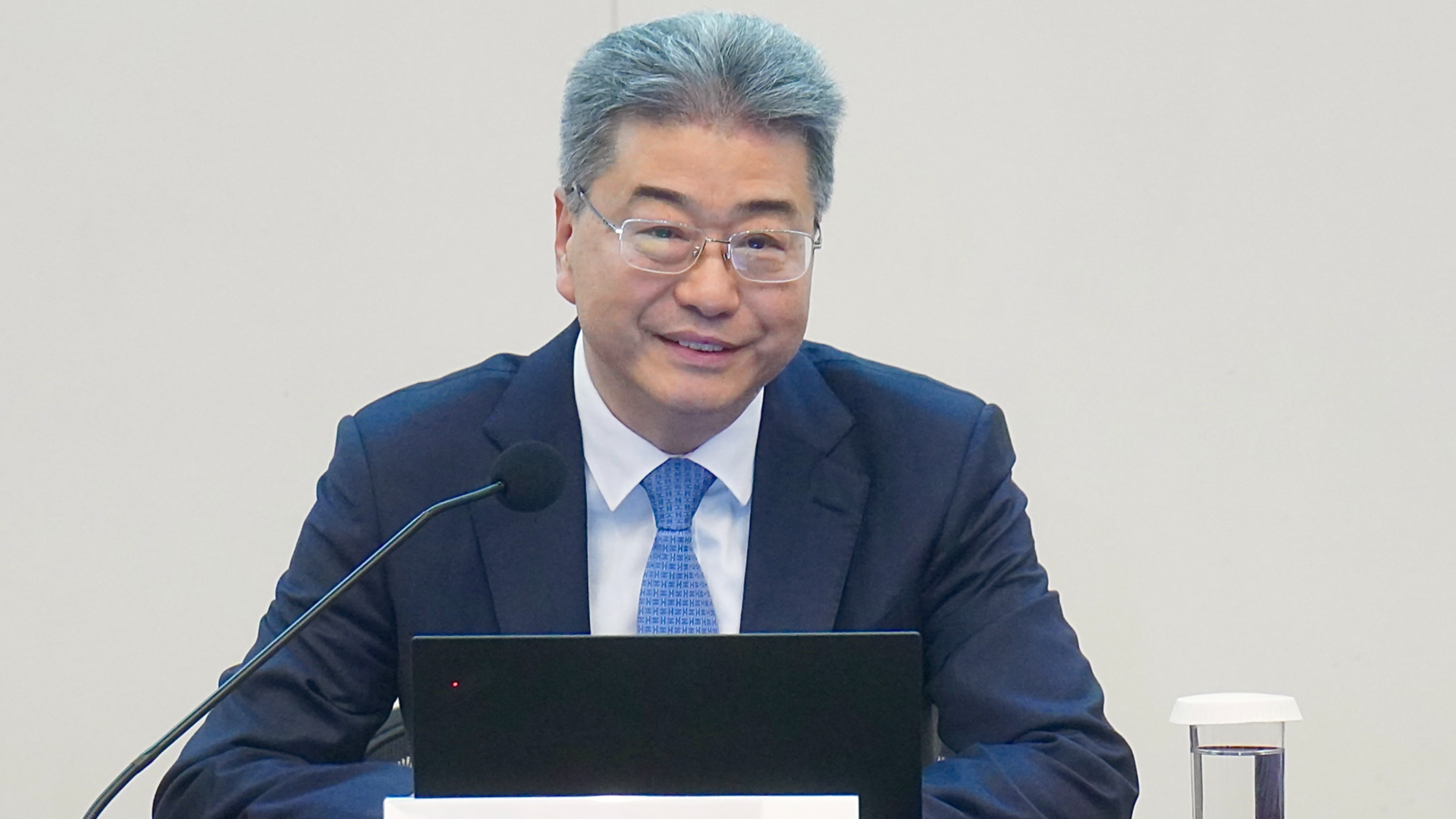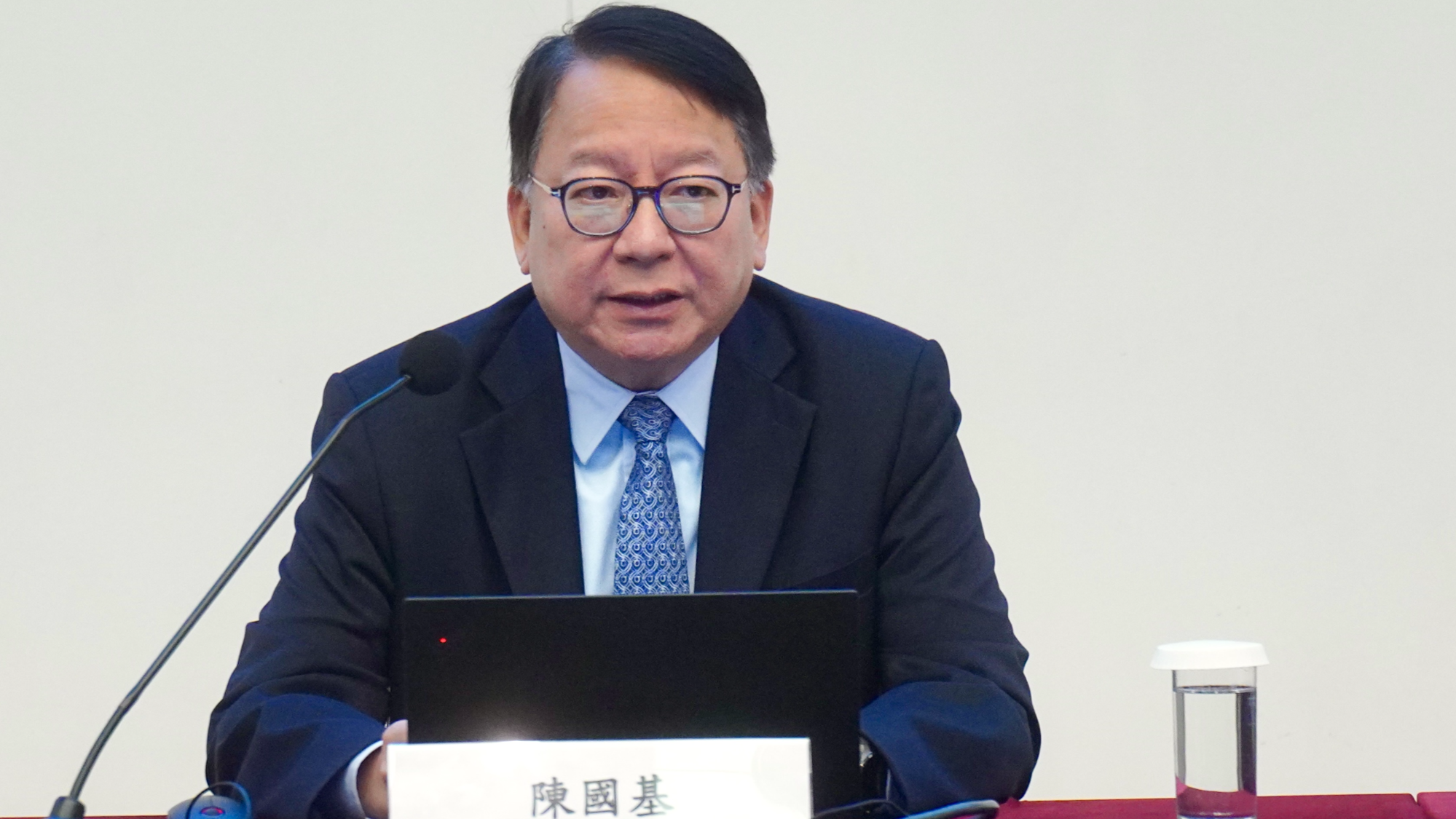
A central government official urged Hong Kong on Wednesday to leverage its strengths in helping the nation train top-notch scientists who can drive breakthroughs in strategic areas and translate academic findings into industrial productivity.
Speaking at a seminar studying the 2024-2035 master plan for transforming China into a global leader in education, Wu Yan, vice-minister of education, also revealed that the country plans to establish a national center in the Guangdong-Hong Kong-Macao Greater Bay Area (GBA) to accelerate the commercialization of research breakthroughs. This center would be the second of its kind in the nation, following the first in Jiangsu province.
Wu said that universities in Hong Kong possess a distinct advantage in cultivating talent, capable of making significant breakthroughs in basic research and fostering innovations in fields such as artificial intelligence (AI), semiconductors, biotechnology, and new energy vehicles (NEVs).
READ MORE: HK's top talent program approves nearly 92,000 applications
He noted that these sectors have the potential to evolve into multitrillion-yuan industries in the near future, driving growth for both Hong Kong and the nation.
Wu welcomed the participation of Hong Kong’s research institutes in national initiatives and expressed the central government’s willingness to provide platforms and resources to those devoted to addressing the nation’s most pressing needs.
“Hong Kong’s universities have strengths in this regard and can excel in this role,” he told a mix of about 400 educators, lawmakers, and government officials at the HKSAR government headquarters. Notable attendees included university council chairpersons, school principals, and award-winning teachers.
He urged Hong Kong’s higher education institutions to collaborate with their counterparts in the Guangdong-Hong Kong-Macao Greater Bay Area to enhance their ability to translate academic findings into higher industrial productivity, particularly through the Hetao Shenzhen-Hong Kong Science and Technology Innovation Cooperation Zone. This zone, located at the border with Shenzhen, is intended to serve as a hub for intensive innovation and technology cooperation between the two regions as part of a strategic initiative to develop the Greater Bay Area.
Wu mentioned that he is in discussions with senior Greater Bay Area officials, including those from Hong Kong and Macao, to establish the transformation center for research breakthroughs. “If we can execute this well, it will foster positive development for both Hong Kong and Guangdong, while instilling confidence in the moderately diversified development of Macao, which has traditionally relied on the gaming industry,” he said.
He added that this initiative could create a new growth pole in China, with far-reaching effects that could even catalyze growth in Southeast Asia.
The seminar was organized by the Hong Kong and Macao Work Office of the Communist Party of China Central Committee, the Hong Kong and Macao Affairs Office of the State Council, and the Ministry of Education at the request of the Hong Kong Special Administrative Region government to study the guiding principles of the 10-year blueprint on education development recently issued by the CPC Central Committee and the State Council.
This initiative follows President Xi Jinping’s speech at the National Conference on Education in Beijing in September, which reiterated the nation’s goal of building a robust education system by 2035 to support modernization and national rejuvenation.
Wu said that Hong Kong is integral to achieving that goal. He expressed confidence in the country’s ability to meet the target on time, thanks to the wide access and high quality of the nation’s education system, from junior level to higher education.

Eric Chan Kwok-ki, chief secretary for administration of the HKSAR government, thanked Wu for elaborating on the document, which he described as the first of its kind. He urged attendees to seize this valuable opportunity to fully understand the directives and translate them into concrete actions.
Chan highlighted the document’s aim to integrate education, technology, and talent development, thereby enhancing the efficiency of the national innovation system and supporting the nation’s modernization drive.
“Implementing the guideline is a crucial task for Hong Kong and a shared responsibility for the entire society,” he said.
Chan also emphasized the HKSAR government’s recent efforts to attract global talent in line with the central government’s vision of establishing Hong Kong as an international hub for high-end talent.
He noted the creation of the Committee on Education, Technology and Talents at the end of last year, which he chairs. This committee is tasked with addressing Hong Kong’s human resource needs in alignment with its strategic positioning and driving the integrated development of education, technology, and talent.
Secretary for Education Christine Choi Yuk-lin said at the event that her agency will capitalize on opportunities from the Belt and Road Initiative (BRI) and the Greater Bay Area to promote the advancement of Hong Kong’s education.
READ MORE: HK firms upbeat about talent market, citing global hub status
She stressed the bureau's commitment to deepening Hong Kong's role as an international post-secondary education hub, pooling talent to strengthen and develop the region's educational capabilities. In addition to enhancing the overall strengths of tertiary education and forging a new competitive edge in digital education, her office will create multiple pathways for young people, enhance students' all-around development, and improve teachers' professional qualifications to cultivate values among students in addition to academic success.
Andrew Yao Cho-fai, council chairman of Lingnan University, who attended the seminar, said the success of China's DeepSeek, an advanced AI-driven search engine, and the animated film Nezha 2 — which features sophisticated animation technologies — both showcase the nation’s educational prowess in nurturing creativity and skills.
He suggested that Hong Kong could become a top choice for international students wishing to study in China, thanks to the city’s reputation as a crossroads of Chinese and Western culture. He pointed out that the wide range of available disciplines and the cultural diversity of students could attract potential students, helping to transform Hong Kong into a global hub for higher education.
Contact the writer at lilei@chinadailyhk.com


